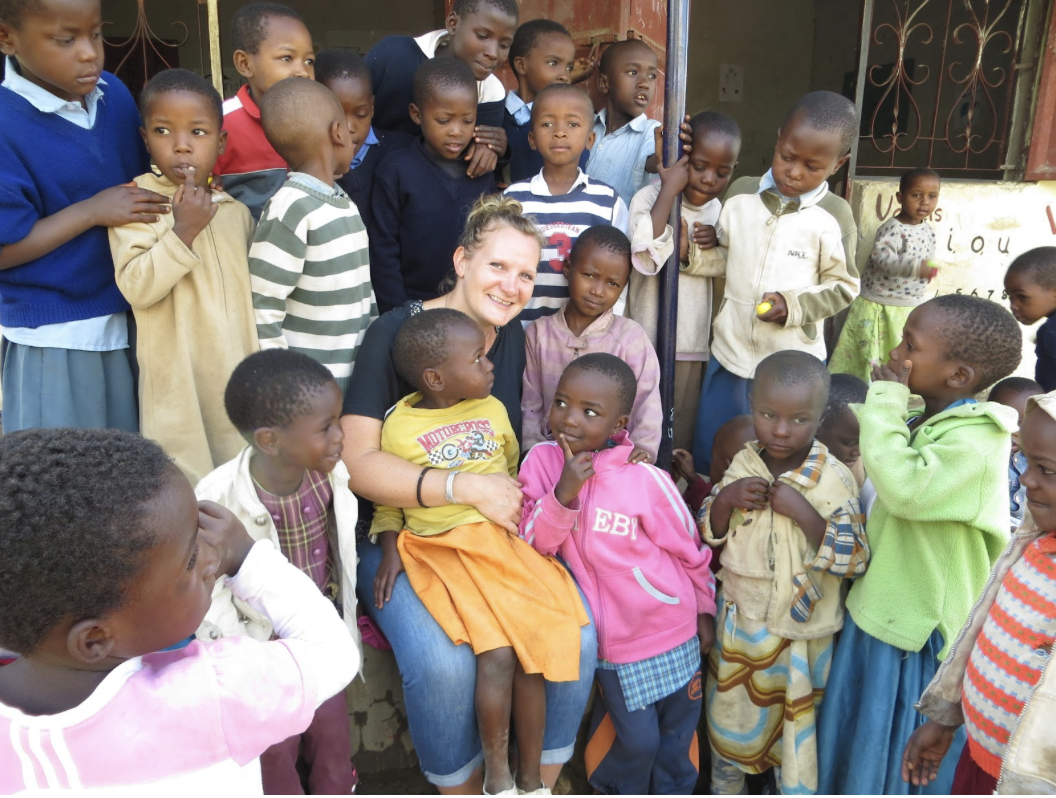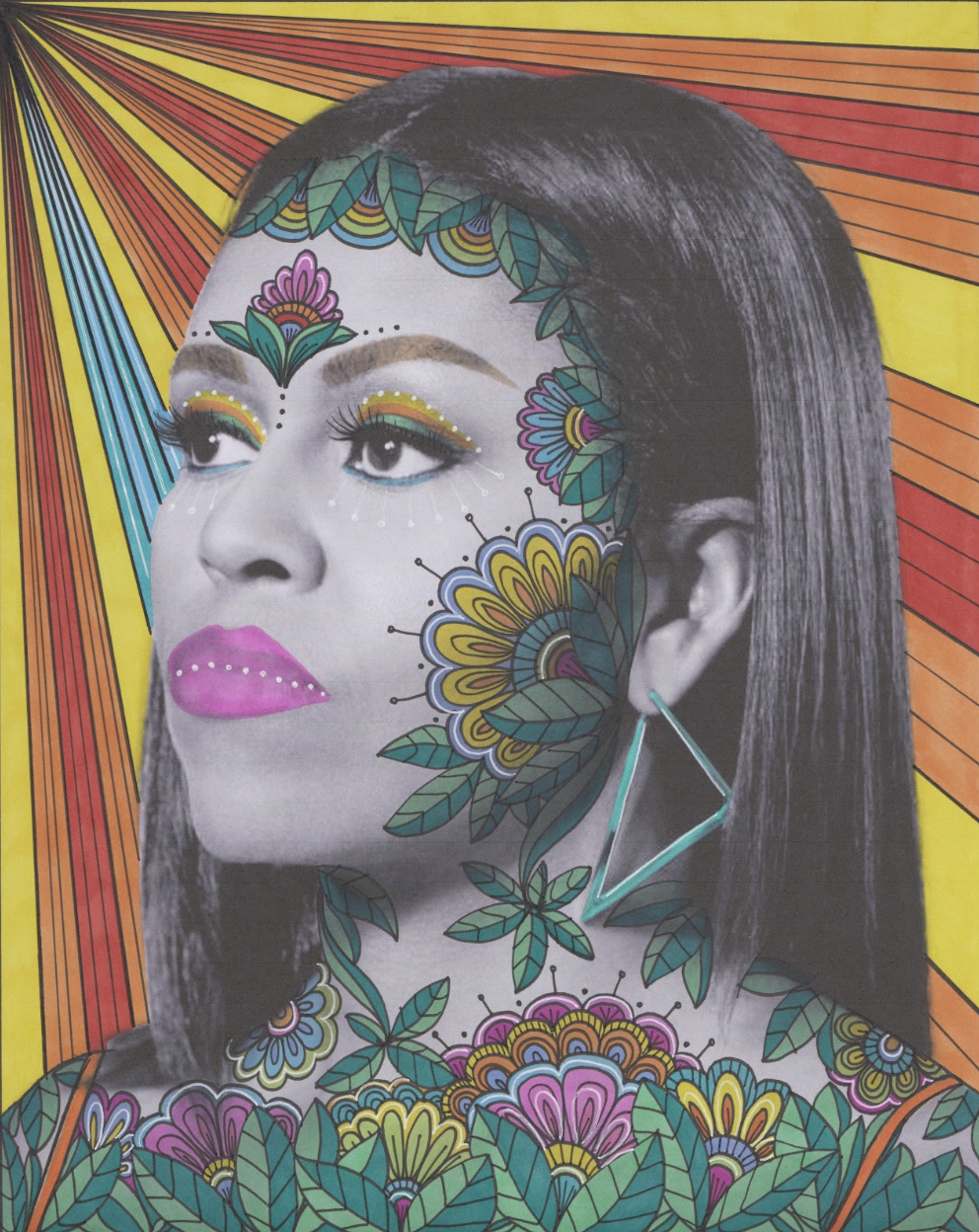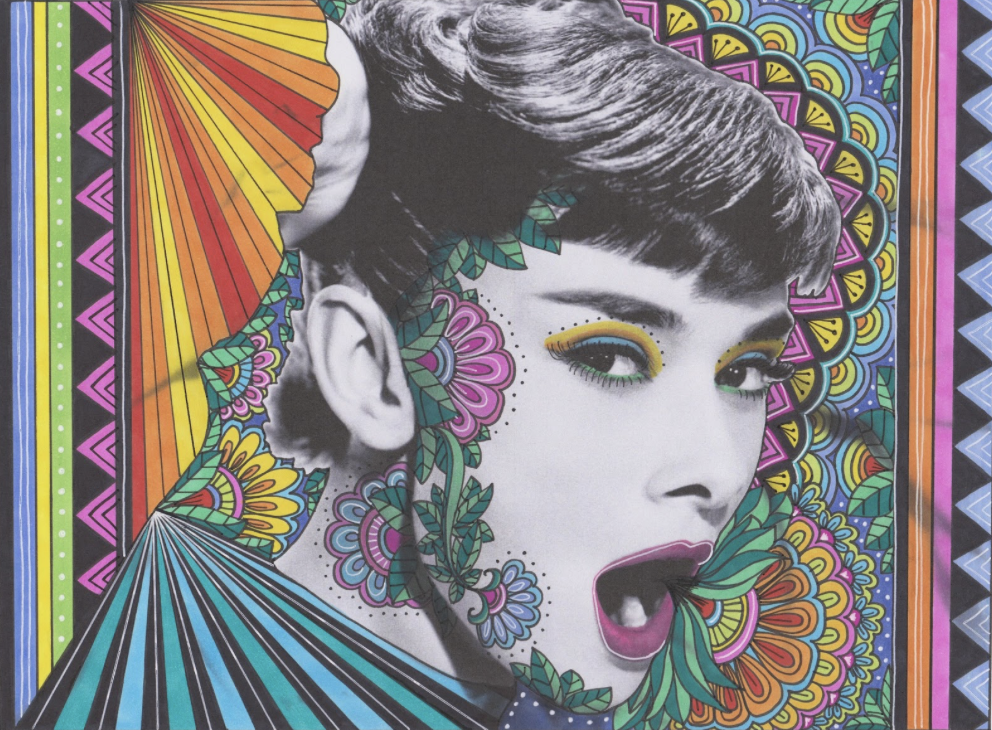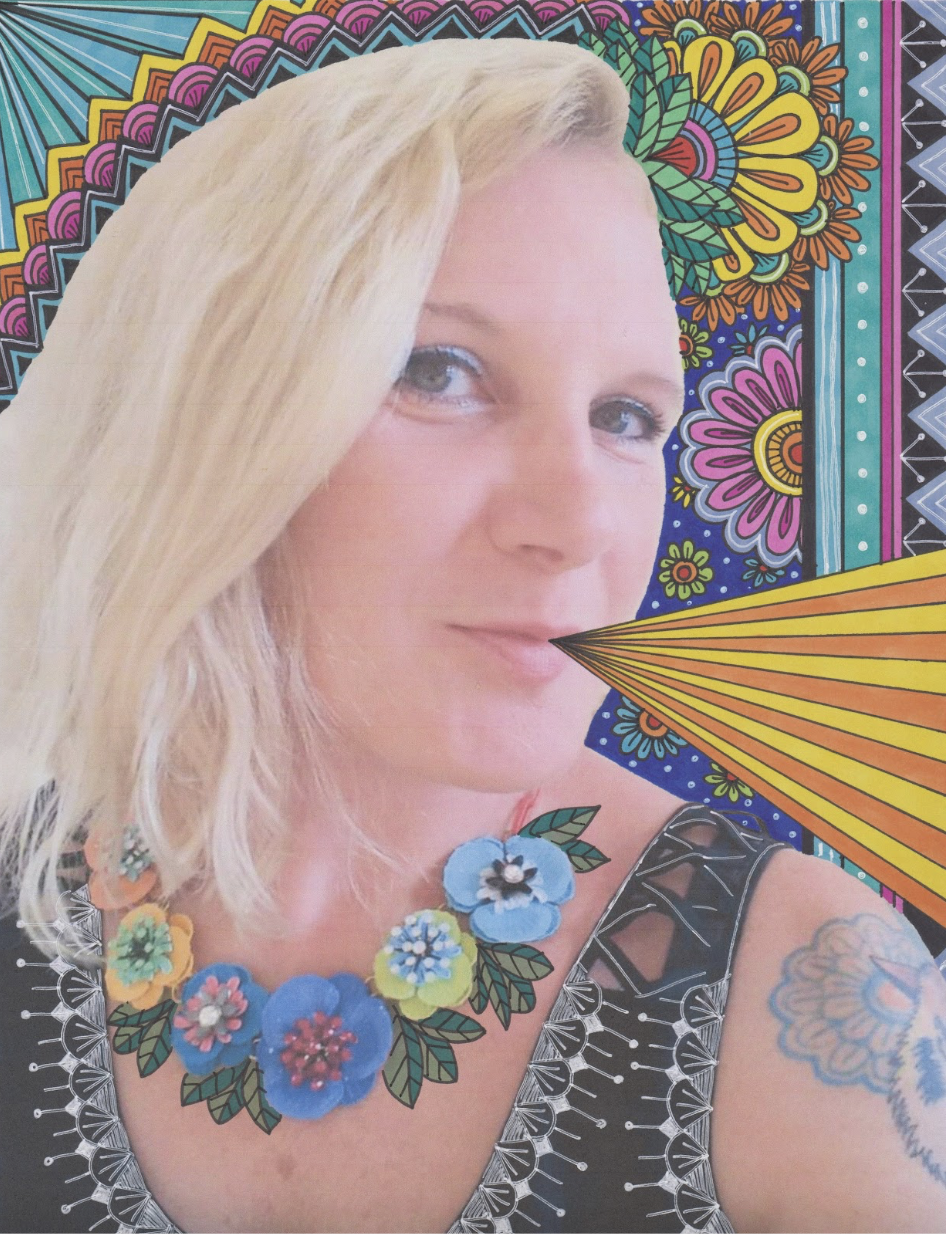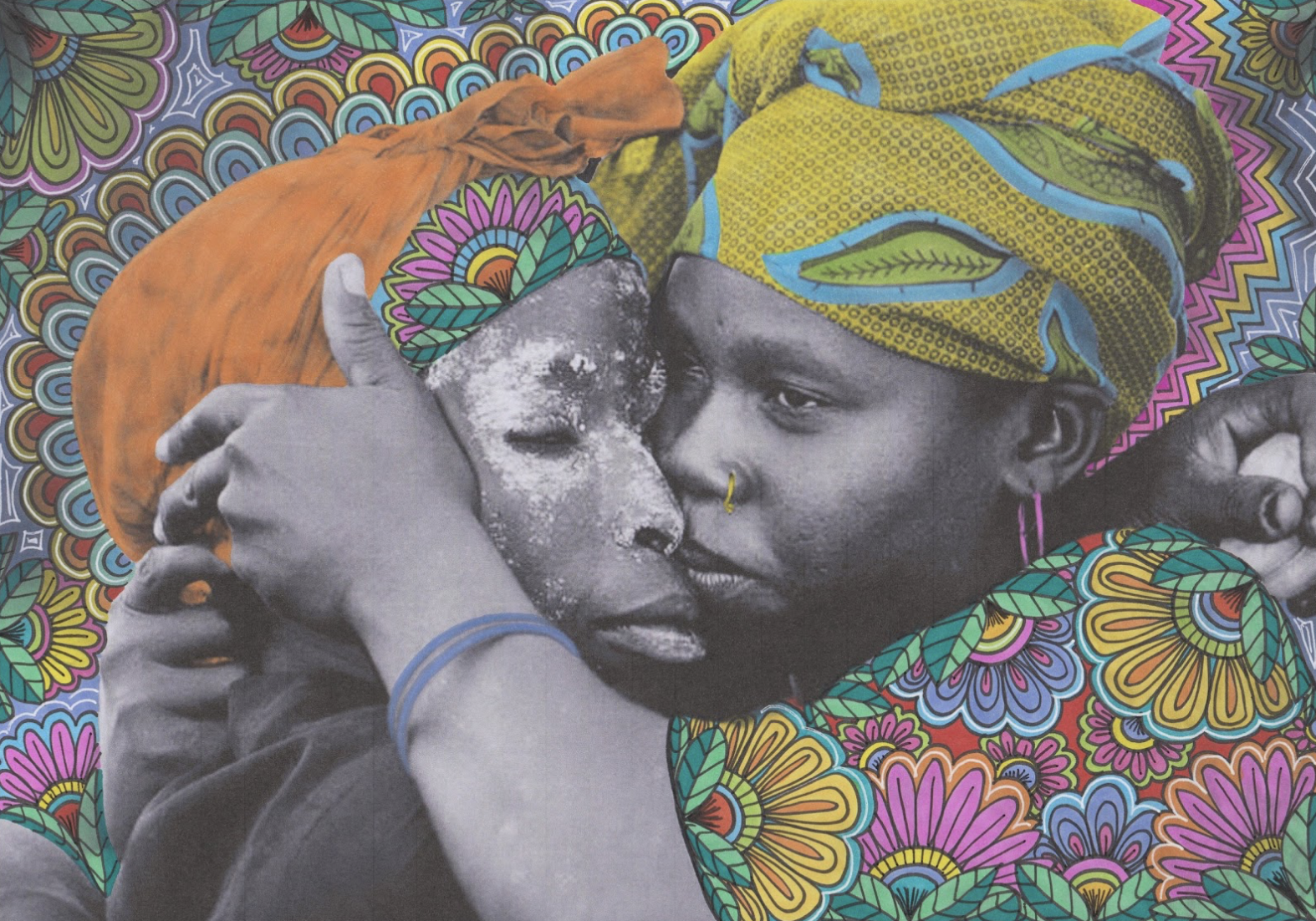Vix Harris, of Vix Harris Designs
Vix Harris, of Vix Harris Designs, on Inclusive and Empowering Feminist Art and the Deep International Impact of Her Community Projects
Vix Harris is an artist, textile designer, and English language teacher from the United Kingdom. She graduated from art college, gaining a degree in Textile and Fashion Design. Currently, Vix is based in Singapore where she creates as an artist and operates as a full-time English language teacher. The ongoing mission to empower women and champion feminist causes through her art is widely recognized through the year-long "50 Rebel Women" project she most recently completed. Her travels span over almost two decades and across many countries to include Italy, Australia, Spain, South Korea, Hong Kong, Tanzania, Vietnam and Indonesia. These travels have allowed her to create and support local projects that range from sponsorships and donations to the co-founding of a sustainable farm.
Check out the interview I conducted with Vix to find out why she started her year-long creative project "50 Rebel Women," and the importance behind it; how she came to support sponsorships in Tanzania - now sustained for over 10 years; why she was drawn to a local non-profit, Sinar Sofia, located in Johor Bahru, and how she recently supported this organization through the act of donations from a month-long creative project where 100% of the proceeds from the month of May were donated directly to this organization; the story behind how she assisted with the co-creation of Project S.E.E.D, a sustainable farm located in Tanzania, run by its local community; the topic of feminism and what it means to her; and future collaboration projects in store.
Jasmine: Hi, Vix, thank you for interviewing with me. You are an artist and textile designer from the UK whose mission is to empower women of all ethnicities and —as you’ve shared with me—champion feminist causes through your art. You’ve traveled to many countries including Italy, Australia, Spain, South Korea, Hong Kong, Tanzania, Vietnam and Indonesia. In return, these travels have greatly influenced your work. Currently, you are living and working in Singapore. Tell me some things I might not know about you.
Vix: Hi Jasmine! Thanks so much for the opportunity to talk about my work and what's important to me. You mentioned some of the countries I've lived in, but you might be interested to hear that I was a real homebody when I was younger. I had no real desire to travel and never imagined that I would spend almost two decades living and working abroad! But when I graduated from art college with a degree in Textile and Fashion Design, I struggled to find a job and after a couple of disastrous work experience placements, became disillusioned with the industry.
That's when I decided to get out of England and spend a year traveling around Australia. I needed to get away and get some perspective.
What actually happened though was that my passion for travel overpowered my passion for art, and I didn't so much as pick up a pencil for the next ten years.
Instead, I became an English language teacher (teaching seems to run in my family) and have lived and worked in eight countries over the last 16 years. I suppose my way of being creative was taking photos during my trips. I never lost my interest in art and creativity, I just didn't feel the need to create art myself until about 5 years ago when I started to get curious again and picked up that pencil.
Jasmine: I think most artists seek to complete projects that continually stretch them. I also believe artists create to open the door for inward journeys, journey’s not only they will go on, but others will as well, in their own way and on their own time. You are in the midst of completing a year-long project, “50 Rebel Women,” in which every week you’ve highlighted a strong woman who has made a significant effort to make the world a better place. There are 3 pieces from the “50 Rebel Women” project that are personal favorites: Maya Angelou, Rahayu Rahmat, and Grace Jones. Although Maya Angelou is no longer here in body, I do believe her spirit lingers in the words she wrote, the talks she gave, and the presence left in rooms she once stood. Her impact is ever-present and her contributions will never be forgotten. All three women are phenomenal: strong women in their own right, have lived lives that are memorable, have significantly impacted others, and have made it their regular itinerary to empower women. Tell me about the inspiration behind this project and what you hope others gain from it.
Vix: I started the project in the spring of 2016 because I wanted to get better at what I did and I knew that the only real way to do that was to practise, to create more art on a regular basis. I also knew from following artists like Lisa Congdon that you have to hold yourself accountable and if you make a project public then others would hold you accountable too.
I had already started messing around with illustrating black and white photographs and had done one of Frida Kahlo that I then shared on my Facebook page. I got some positive feedback from friends and family and this gave me the idea of continuing along the same lines. I knew the project had to be something that would hold my interest for a long time and thanks to my mum, who is a staunch feminist, I am passionate about women's rights and promoting the achievements of strong female role models.
I am still working full-time as a teacher so I had to be realistic about the restrictions on my time and thought I would be able to produce one A4 (approx. 11 x 8.5 inches) piece per week. I thought 50 was a nice round number and there are 52 weeks in a year so I decided on the hashtag #50rebelwomen. I announced the start of the project on Facebook and asked friends and family for suggestions. I already knew a lot of the women I wanted to illustrate and write about, but asking other people gives you a much wider perspective.
In terms of what I hoped others might gain from it, the goal was quite simple; to put a spotlight on some of the strong, intelligent, resilient women in our world and inspire others to aim higher and achieve more.
I have four nieces ranging in age from 3 to 12 and I feel very strongly that they should have an abundance of positive female role models as evidence that with hard work and determination they are capable of anything.
Once I got started on the project, I was overwhelmed by the stories of all these amazing women that I had previously been oblivious to. It opened my eyes to just how biased history can be and to how many talented, inspirational women have been overlooked by the media and by society as a whole.
Jasmine: So Vix, let’s talk about the projects you are involved in. I truly believe that giving back, on a local and global scale, is the only way to move our communities forward. Even in the smallest of ways, we all have something to offer through the giving of our time, finances, and/or talent. In addition to the work you do as an artist and textile designer, you currently co-run two projects in Tanzania. They were created there 10 years ago after teaching English at a primary school. Tell me about these two projects and the decision behind starting them.
Vix:
Of all the things I have achieved so far, my involvement in these projects is the thing I am most proud of.
I never intended for either of them to happen but I've always been a spontaneous person and a great believer in taking opportunities when they come along.
In 2007, I went to Tanzania for 3 months to teach English in a primary school. I had been talking about returning to Africa for years. My parents had both gone out there to teach in the 60s, met in Kenya and got married in Nairobi cathedral. Both my siblings were born out there and I had spent some of my early childhood in Kenya and Malawi. I had always, always wanted to return but I knew that a two-week holiday wasn't going to be enough - I wanted to live within a community and get to know the people and their culture.
Originally, I had planned to volunteer in Kenya but the organisation I went out there with, MondoChallenge Foundation, decided that the need was greater in Tanzania. Of course, I was happy to go wherever I was sent.
The whole experience changed my life. I spent 3 months living in a village called Ngaramtoni (in Northern Tanzania) with the Kinisi family, who I completely fell in love with. The parents, Mr David and Mama Baraka, were unusual because he was Masai and she was Chaga and members of different tribes don't usually marry. Even more unusual for a place where most women stay at home and raise children, Mama Baraka was an anesthetist at the local hospital. They had 3 sons of their own but had also taken in their nephew and did a lot of work within the community to support those whose needs were much greater. They were both an inspiration to me and still are.
I started the sponsorship project accidentally, really. The primary school where I was working had over 1500 pupils and only 5 teachers, so my average class size was 120. I had a little boy in one of my classes who was incredibly bright and ridiculously enthusiastic.
His name was Ndobiri. He had this huge smile which lit up the room and he always had his hand up, desperate to answer questions. I started to think about the possibility of sponsoring him so that he could continue with his education - many kids drop out after primary school because their families can’t afford to pay the fees.
I asked MondoChallenge Foundation about it and they arranged for me to meet his father, Sambeke, a farmer, who was raising 7 kids on his own. He didn’t speak a word of English and my Swahili was pretty rubbish so one of the teachers from the school came with me to translate. It was so humbling to sit with this man who was so desperate to give his children an education but who had next to nothing.
When I returned to the UK and told friends and family about Ndobiri they started to ask about doing something similar. Because I had such a strong relationship with the Kinisi family, I knew that Mr David and Mama Baraka would support me in any way they could and make sure the money I sent each month would go exactly where it was needed. That was 10 years ago and we currently sponsor 7 young adults - they’re not really kids anymore! They’re all at secondary school and working hard to give themselves a brighter future. Ndobiri is 21 now and studying to be a doctor.
The second project started just as organically. During my time in the village, I met James who was working at a local orphanage. We became friends and kept in touch. I have been back to Tanzania 3 times since my first trip out there and during the last visit in 2013 I met up with him again. He had moved back to his home town 3 hours south of Dar Es Salaam and was living in the bush with his father. He was restless and bored and was looking to start some kind of community project. I told him that I would be more than happy to help - a lot of my friends in the UK were looking for projects to support which were not linked to big charities. They wanted to know exactly where their money was going and get regular updates, etc.
So Project S.E.E.D (www.facebook.com/TZProjects) was started in 2014.
It’s a sustainable farm run by James which employs local people and teaches community members how to grow their own fruit and vegetables.
It’s been a tough few years and we’ve had many setbacks along the way - drought, flooding, malaria, snake bites, robbery, you name it! - but James’s enthusiasm and hard work has ensured that they’re now harvesting their own maize and selling their produce at local markets. The goal is for the project to be completely self-sufficient in the near future and we’re getting closer to that as each month passes.
I plan to return to Tanzania in December this year to spend some quality time with my African friends and family and update our donors on the progress of both projects. I am so incredibly blessed to have had such an amazing experience there and to have these wonderful people in my life who have taught me the real meaning of strength, love, resilience and friendship.
Jasmine: While in Singapore, you’ve reached further to support a local non-profit, Sinar Sofia, located in Johor Bahru (across the border in Malaysia). In a brief synopsis, you explained to me that this organization “helps to get prostituted women off the streets of Johor Bahru and into meaningful employment. Many of them are drug addicts and also HIV positive.” Tell me more about this organization, how you’ve come to work with them, and your thoughts on the impact you believe your art/work has made toward their cause.
Vix: Sinar Sofia was set up by Roslee Ismail in 2011 and his partner Rahayu Rahmat is its co-founder.
It is an NGO which helps those infected and affected by drug addiction and the HIV virus to live a long, meaningful and healthy life.
Rahayu was sold to a brothel by her ex-husband in 2004 and spent the next 6 years on the streets of Johor Bahru, trying to feed her 4 kids.
She spends most of her time with the women experiencing the same thing she did, women working on the streets and using drugs to numb the pain or prostituting themselves to support their drug habit.
I got involved with Sinar Sofia through Sangeeta Nambiar, a theatre director here in Singapore. I had gone to see her production of the Vagina Monologues, which she was also acting in, and at the end of the show she talked about Sinar Sofia and Rahayu. I knew there and then that I wanted to find out more about this amazing organisation. As luck would have it, a week or so later Sangeeta came to the British Council (where I work as an English teacher) as part of their International Women’s Day celebrations and I got to meet her then and ask her more about Sinar Sofia.
After hearing Rahayu’s story, I decided to make her one of my #50rebelwomen. At Sangeeta’s next show, The Unreasonable Feminist, I presented her with the design. That was the first time I met her and got to give her a massive hug. For the month of May all money made from my Etsy shop was donated to Sinar Sofia. I also sold prints at Sangeeta’s show and at another local craft fair. I raised S$376 in total, which will go towards their halfway house in Johor Bahru, which has just been completed.
In terms of the impact my artwork has made, I think it’s probably a very small one but I knew that I had to get involved. My design of Rahayu has easily been my most popular Rebel Woman so I hope I’ve brought more attention to her cause and to women with stories like hers in general.
I’m sure that my involvement with Sinar Sofia will continue and I hope to design and paint a mural in the new halfway house in Johor Bahru over the next couple of months. The great thing this whole experience has done is connect me with some amazing women here in Singapore who are inspiring others every day with their hard work and determination.
Jasmine: I think people start out with the drive and energy to complete community projects they are passionate about. But, somehow, somewhere in the midst of it all, that passion turns into a burden, an inconvenience. Life happens and stress emerges, which leads to the end of a project that had great potential. It may even be abandoned because of an opinion a non-supporter or friend voices—thinking the results aren’t worth the effort, the project isn’t something one should support, or even, that the end goal is unachievable. How have you managed to disregard the opinion of others and sit personal struggles aside in order to consistently and successfully do a greater work for humanity?
Vix: Wow! What a great question. The answer is pretty simple: Love. I love the people I’ve developed these projects with. They’re my friends. I think if you love someone, you will do anything for them and all you want is for them to succeed.
I never intended to go to Tanzania and set up two community projects, but I fell in love with the people I met there and so 10 years later I’m still there for them, doing what I can to make their lives a little bit easier.
They are passionate people, determined, hard working, incredibly generous, funny and kind. I just want to help my friends.
I am incredibly fortunate to come from a loving, supportive family and have never wanted for anything in my life. It’s not OK for people like me to sit back and do nothing. Other people have it harder - way, way harder - and that needs to be recognised and acted upon.
I’m also pretty stubborn.
The moment someone tells me something is not possible or shouldn’t be done, that’s when I get stuck in. Don’t ever tell me what to do!
Jasmine: With everything you are involved in—serving two projects in Tanzania (for over 10 years), currently supporting a local NGO in Johor Bahru, working, and collaborating with other creatives—tell me how you find time to renew yourself, and what you do to refill.
Vix: Another great question! I’m a very sociable person, I love people, but I also need time alone. I love my own company and I spend as much time as possible with my own thoughts. I sometimes go to a cafe by the beach with a notebook and just think and write stuff down. I love listening to music (especially when I’m drawing) and am a great movie-goer. I’m very lucky to have the beautiful MacRitchie Reservoir just down the road from where I live so I go there often to be in nature and to destress and recharge my batteries.
Jasmine: I want to pivot and talk about feminism for a moment. From the words of a writer, feminist theorist, and cultural critic, bell hooks explained in her book, “Feminism is for Everybody: Passionate Politics,”—a book I’ve owned since my undergraduate classes in feminism—that “simply put, feminism is a movement to end sexism, sexist exploitation, and oppression,” and declared that “feminism is for everybody.” You are a feminist. Tell me what feminism means to you and how you’ve been able to incorporate it into your work.
Vix: Feminism is incredibly important to me. I was a feminist before I knew what the word meant, thanks to my mother’s great example. She is my 50th and final Rebel Woman and she taught by example. I was brought up to believe I could do anything I put my mind to and it never occurred to me that certain things might be off limits because I was a girl.
When I was 24 I travelled solo for a year around Australia and a few people then were worried about my safety because I was a woman travelling alone. But the urge to travel was always stronger than any fear of danger. I’ve subsequently lived and worked in South Korea on my own, in Hong Kong, Spain, Tanzania, Vietnam, Indonesia, and scores of other countries where I could have faced scary situations. If you let these fears stop you from doing the stuff you really want to do, then you’re finished before you’ve even begun.
I’m also very passionate about calling myself a feminist, about naming it.
There’s so much debate nowadays about what being a feminist means, but as an English teacher I just refer people to the dictionary: ‘The advocacy of women's rights on the ground of the equality of the sexes’. Women should have equal rights to men, end of story.
It has to be a big part of my work because it’s part of who I am as a person and any artist will tell you that your work is an extension of you, of who you are and what you stand for, what you believe, what you hold dear. I also have 4 nieces who are growing up in a very different world to the one that I grew up in so it’s important for me to lead by example and show them what’s possible.
Jasmine: What advice would you give to women who are looking to deeply blend their work, passions, and philanthropy into one?
I think the best advice is to just embrace who you are fully. Show your complete self. Don’t hide the stuff that’s a part of you because you think others might reject it or because you haven’t seen a template for it.
Most people just have a job and they go to work and come home and maybe have a couple of hobbies that they do at the weekend. That’s great, nothing wrong with that. But I want to be a teacher AND an artist, and I want to be involved in development projects. Can I organise my time so that this is possible? Yes? OK, then that’s what I’ll do.
When I was 21 I watched my ex-boyfriend’s dad (to whom I was very close) slowly die of throat cancer at the age of 49, and a few months ago I lost my beloved cousin Ben to pancreatic cancer at the age of 50. None of us knows what the future holds but we’re here now, and living half a life is an insult to those who never got that opportunity.
One of my favourite quotes is by the poet Mary Oliver. I love it so much that I have printed it out and put it above my desk as a daily reminder:
"Listen, are you breathing just a little, and calling it a life?"
I know it’s a cliche, but life is short. You have to follow your heart, go with what makes you feel good, the stuff that lights you up inside, and take every opportunity that comes your way.
Jasmine: Vix, tell me one word that would describe your journey thus far.
Vix: Joyous.
Jasmine: Are there any current or future projects you’d like to talk about beyond the “50 Rebel Women” project?
Vix: I think for the next 6 months or so I’m going to be focusing on collaborations with other artists, mainly photographers. I’ve already worked with Jelisa Peterson and her gorgeous images of the people of Mozambique, and I hope to do more with her. I’ve also done a piece with Henry Morris (aka @Sharpozz) and am looking forward to working with him again and developing our professional relationship. There are lots of exciting things in the pipeline so watch this space!
Jasmine: Where can you be found online/off-line?
Vix: My website is www.vixharrisdesigns.com and you can find me on Facebook (www.facebook.com/VixHarrisDesigns), Instagram (@vixharrisdesigns) and Pinterest (www.pinterest.com/VixDesigns). You can find updates on my Tanzanian project at www.facebook.com/TZprojects and www.justgiving.com/Vicky-Harris1
Thanks so much, Jasmine! I’ve thoroughly enjoyed answering all your questions.
Jasmine: And, thank you, Vix!
Interview originally published July 17, 2017
